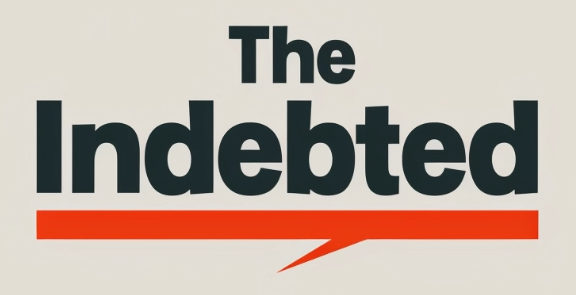When considering debt consolidation, one of the most important decisions you’ll make is choosing between a secured and unsecured loan. Both options have their pros and cons, and the choice you make will depend on your unique financial situation. In this article, I’ll provide an overview of secured and unsecured debt consolidation loans, and offer some tips on how to choose the right one for you.
Secured debt consolidation loans are backed by collateral, which is typically a valuable asset like a home or car. This collateral serves as a guarantee to the lender that they will be repaid, even if you default on the loan. As a result, secured loans typically have lower interest rates and more favorable terms than unsecured loans. However, if you fail to make your payments, you risk losing your collateral.
Unsecured debt consolidation loans, on the other hand, do not require collateral. Instead, they are based solely on your creditworthiness. Because there is no collateral to secure the loan, unsecured loans are considered higher risk by lenders, and as a result, they often come with higher interest rates and less favorable terms. However, if you are unable to make your payments, you won’t risk losing any assets. Now that we’ve covered the basics of secured and unsecured debt consolidation loans, let’s take a closer look at how to choose the right one for your needs.
Understanding Debt Consolidation
Debt consolidation is the process of combining multiple debts into a single loan with a lower interest rate. This can be done through a secured or unsecured loan. The goal of debt consolidation is to simplify your finances and make it easier to manage your debt.
Secured vs. Unsecured Debt
There are two types of debt consolidation loans: secured and unsecured. A secured loan requires collateral, such as a home or car, to secure the loan. This means that if you default on the loan, the lender can seize your collateral to recoup their losses. Secured loans typically have lower interest rates than unsecured loans because they are less risky for the lender.
On the other hand, an unsecured loan does not require collateral. Instead, the lender relies on your creditworthiness to determine whether to approve your loan application. Unsecured loans typically have higher interest rates than secured loans because they are riskier for the lender.
Assessing Your Financial Situation
When deciding between a secured and unsecured debt consolidation loan, it’s important to assess your financial situation. If you have collateral, such as a home or car, and you’re confident that you can make your loan payments on time, a secured loan may be a good option. However, if you don’t have collateral or you’re worried about losing your collateral if you can’t make your loan payments, an unsecured loan may be a better choice.
It’s also important to consider your credit score and debt-to-income ratio. If you have a good credit score and a low debt-to-income ratio, you may qualify for a lower interest rate on an unsecured loan. However, if your credit score is poor or your debt-to-income ratio is high, you may only qualify for a secured loan.
Ultimately, the decision between a secured and unsecured debt consolidation loan depends on your individual financial situation. It’s important to weigh the pros and cons of each option and choose the one that best fits your needs.
Factors to Consider When Choosing Debt Consolidation Loans
When considering debt consolidation loans, it’s essential to take into account several factors that can affect your financial situation. Below are some of the critical factors to consider when choosing between secured and unsecured debt consolidation loans.
Interest Rates and Loan Terms
One of the essential factors to consider when choosing between secured and unsecured debt consolidation loans is the interest rate and loan term. Interest rates on debt consolidation loans can range from 5% to 36%, depending on your credit score, debts, and monthly income. It’s essential to find a loan with a lower interest rate to save money over the long term.
Loan terms can range from 24 months to 60 months, depending on the lender. A longer loan term can result in lower monthly payments, but it can also mean paying more interest over time. It’s important to consider both the interest rate and loan term when choosing between secured and unsecured debt consolidation loans.
Credit Score Impact
Another factor to consider when choosing between secured and unsecured debt consolidation loans is the impact on your credit score. Debt consolidation can help improve your credit score by reducing your overall debt and making it easier to make timely payments. However, applying for a new loan can also lower your credit score temporarily.
It’s essential to choose a loan with terms that you can manage, which can help you make timely payments and improve your credit score over time.
Collateral and Asset Evaluation
Secured debt consolidation loans require collateral, such as a home or car, to secure the loan. If you default on the loan, the lender can seize your collateral to recover their losses. Unsecured debt consolidation loans do not require collateral, but they often have higher interest rates to compensate for the added risk.
If you’re considering a secured debt consolidation loan, it’s essential to evaluate your assets and determine if they’re worth the risk of securing the loan. It’s also important to choose a reputable lender and read the loan agreement carefully to understand the terms and conditions of the loan.
Overall, choosing between secured and unsecured debt consolidation loans requires careful consideration of several factors. By evaluating your financial situation and understanding the terms and conditions of each loan, you can make an informed decision that helps you achieve your financial goals.
Pros and Cons of Secured Debt Consolidation
When considering debt consolidation, one of the first decisions you’ll need to make is whether to choose a secured or unsecured loan. Secured debt consolidation loans require collateral, while unsecured loans do not. In this section, I will outline the pros and cons of secured debt consolidation.
Advantages of Secured Loans
One of the main advantages of secured debt consolidation is that it typically offers lower interest rates than unsecured loans. This is because the lender has collateral to fall back on if the borrower defaults on the loan. Additionally, because secured loans are less risky for lenders, borrowers with lower credit scores may have an easier time qualifying for a secured loan than an unsecured loan.
Another advantage of secured loans is that they may allow borrowers to consolidate a larger amount of debt. Because the loan is secured by collateral, lenders may be more willing to lend larger amounts of money than they would with an unsecured loan.
Risks and Drawbacks
The biggest risk of secured debt consolidation is that if you default on the loan, you could lose your collateral. For example, if you take out a home equity loan to consolidate your debt and then default on the loan, the lender could foreclose on your home.
Additionally, because secured loans are typically associated with larger amounts of debt, borrowers may be more likely to default on the loan. This is especially true if the borrower is already struggling to make ends meet and is using the loan as a last resort.
Finally, it’s important to note that taking out a secured loan may put your equity at risk. If property values decrease, you could end up owing more on your loan than your property is worth.
In summary, secured debt consolidation loans offer lower interest rates and may allow borrowers to consolidate a larger amount of debt. However, they come with the risk of losing collateral and putting your equity at risk. It’s important to carefully consider your options before deciding whether a secured loan is right for you.
Pros and Cons of Unsecured Debt Consolidation
Benefits of Unsecured Loans
Unsecured loans can be an attractive option for those seeking debt consolidation. One of the main benefits is that they don’t require collateral, such as a home or car, to secure the loan. This means that if you default on the loan, the lender cannot seize your assets.
Another advantage of unsecured loans is that they are typically easier to obtain than secured loans. This is because the lender is taking on more risk by not requiring collateral, so they may have stricter eligibility criteria. However, if you have a good credit score and stable income, you may be able to qualify for an unsecured loan with favorable terms.
Challenges and Limitations
One of the biggest challenges of unsecured loans is that they often come with higher interest rates than secured loans. This is because the lender is taking on more risk by not requiring collateral. As a result, you may end up paying more in interest over the life of the loan.
Another limitation of unsecured loans is that they may not be able to cover all of your debts. For example, if you have a significant amount of credit card debt, an unsecured loan may not be enough to consolidate all of your debts. In this case, you may need to consider other options, such as a balance transfer credit card or a home equity loan.
Overall, unsecured debt consolidation loans can be a good option for those who don’t want to risk their assets as collateral and have a good credit score. However, it’s important to weigh the benefits and challenges carefully before making a decision.
Navigating the Application and Approval Process
When it comes to consolidating your debt, the application and approval process can seem daunting. However, with a little preparation and knowledge, you can make the process go smoothly. Here are some tips to help you navigate the process:
Documentation and Eligibility
Before you start the application process, it’s important to gather all the necessary documentation. This may include proof of income, employment verification, and a list of your debts. It’s also important to review the eligibility requirements for the lender or credit union you’re considering. Some lenders may require a minimum credit score or a certain level of income.
Selecting a Lender or Credit Union
When selecting a lender or credit union, it’s important to do your research. Look for lenders that specialize in debt consolidation loans and have a good reputation. You may also want to consider online lenders, which can offer competitive rates and a streamlined application process.
Once you’ve selected a lender or credit union, you’ll need to complete the application process. This may involve filling out an online application or visiting a branch in person. During the application process, the lender will review your credit history, income, and other factors to determine your eligibility for a loan.
If you’re approved for a loan, you’ll receive a loan agreement that outlines the terms and conditions of the loan. It’s important to review this document carefully and ask any questions you may have before signing. Once you’ve signed the loan agreement, the lender will disburse the funds to pay off your existing debts.
By following these tips, you can navigate the application and approval process for a debt consolidation loan with confidence and ease.
Strategies for Successful Debt Management
Managing debt can be a challenging task, but with the right strategies, it can be done successfully. Here are two strategies that can help you manage your debt effectively:
Creating a Repayment Plan
One of the most effective ways to manage your debt is to create a repayment plan. This plan should include all of your debts, the minimum monthly payment for each debt, and the total amount of debt you owe. You should also include a budget that outlines your monthly income and expenses.
Once you have a clear understanding of your debt and your budget, you can start to create a repayment plan. There are two main approaches to debt repayment: the snowball method and the avalanche method.
The snowball method involves paying off your debts in order of smallest to largest balance. This approach can help you build momentum and motivation as you pay off your smaller debts first.
The avalanche method involves paying off your debts in order of highest to lowest interest rate. This approach can help you save money on interest in the long run.
Avoiding Future Debt
In addition to creating a repayment plan, it’s important to avoid future debt. This can be done by creating a budget and sticking to it. Make sure your budget includes a monthly payment for your debt repayment plan.
You should also focus on building an emergency fund. Having savings can help you avoid taking on new debt when unexpected expenses arise.
Finally, consider working with a financial advisor or credit counselor. These professionals can provide guidance and support as you work to manage your debt and improve your financial situation.
By creating a repayment plan and avoiding future debt, you can successfully manage your debt and improve your financial well-being.




